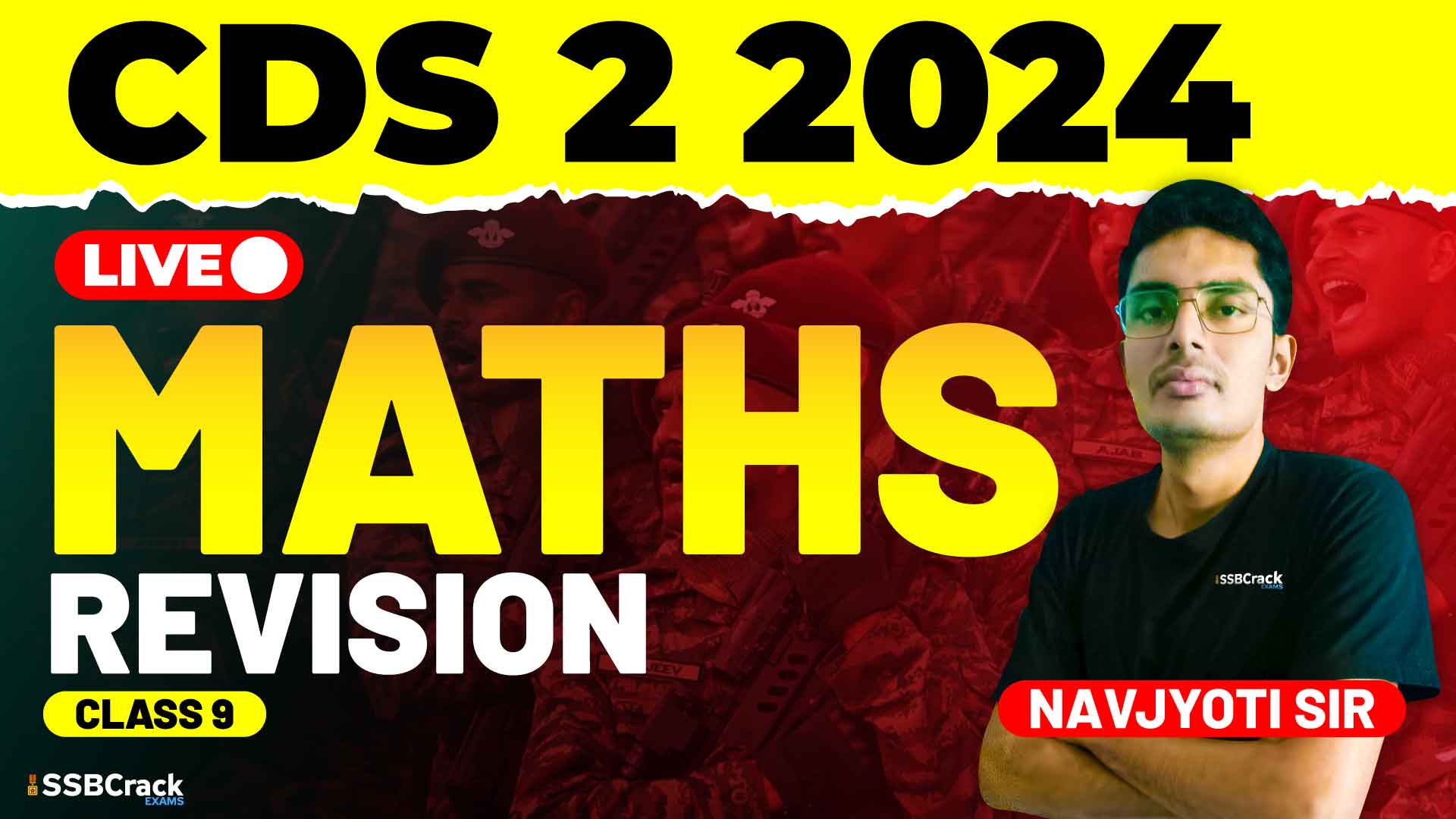The Combined Defence Services (CDS) exam is a crucial stepping stone for candidates aspiring to join the Indian Armed Forces. Among the various sections of the exam, Elementary Mathematics holds significant weight, demanding a strong grasp of fundamental concepts. A recent class dedicated to this section focused on the Number System, with an emphasis on solving multiple-choice questions (MCQs), which are integral to the CDS exam. This article will highlight the key aspects of the Number System covered in the class and offer strategies for tackling related MCQs effectively.
Understanding the Number System
The Number System is a fundamental concept in mathematics that forms the basis for many advanced topics. It encompasses various types of numbers, such as natural numbers, whole numbers, integers, rational numbers, and irrational numbers. Understanding the properties and operations related to these numbers is essential for solving problems in the CDS exam.
Key Concepts Covered:
- Natural and Whole Numbers: Natural numbers (positive integers starting from 1) and whole numbers (natural numbers including zero) are the building blocks of the Number System. The class emphasized the importance of recognizing patterns and relationships between these numbers.
- Integers: Integers include positive and negative whole numbers, along with zero. The class discussed operations on integers, such as addition, subtraction, multiplication, and division, and their applications in problem-solving.
- Rational and Irrational Numbers: Rational numbers can be expressed as a ratio of two integers, while irrational numbers cannot. The class explored how to identify and differentiate between these numbers, a crucial skill for the CDS exam.
- Prime Numbers and Composite Numbers: Prime numbers have exactly two distinct positive divisors: 1 and the number itself, while composite numbers have more than two. The class highlighted techniques to identify prime numbers and the importance of prime factorization in solving MCQs.
- Decimal Representation: Understanding the decimal representation of numbers, including terminating and non-terminating decimals, was a key focus. The class discussed how to convert repeating decimals into fractions, a common type of question in the CDS exam.
Solving MCQs on Number System
The class was heavily oriented towards practicing MCQs, which are a crucial component of the CDS exam. Here’s a breakdown of the strategies discussed:
- Read the Question Carefully: This might seem obvious, but it’s easy to overlook important details under exam pressure. Always read the question thoroughly before attempting to solve it. Look for keywords and numbers that hint at specific concepts, such as prime factorization or properties of integers.
- Eliminate Wrong Choices: In multiple-choice questions, the process of elimination can be a powerful tool. Even if you’re unsure of the correct answer, eliminating one or two incorrect options increases your chances of selecting the right one. The class emphasized practicing this technique to improve accuracy.
- Use Estimation: For questions involving large numbers or complex calculations, estimation can save time. If the answer choices are far apart, estimating the result can quickly lead to the correct option without performing detailed calculations.
- Practice Mental Math: Speed is crucial in the CDS exam, and mental math skills can significantly reduce the time spent on calculations. The class encouraged regular practice of basic arithmetic operations to enhance mental math abilities.
- Understand Common Pitfalls: The class also discussed common mistakes candidates make in the Number System section, such as confusing rational and irrational numbers or misapplying properties of integers. Being aware of these pitfalls can help you avoid them during the exam.
- Time Management: Effective time management is key to completing the Elementary Mathematics section within the allotted time. The class suggested dividing time equally among questions and avoiding spending too much time on a single question. If a question seems too difficult, it’s better to skip and return to it later if time permits.
Strategies for CDS Exam Preparation
To excel in the Number System section of the CDS exam, it’s important to adopt a comprehensive preparation strategy. Here are some tips:
- Regular Practice: Consistent practice is essential for mastering the Number System. Work on a variety of problems to cover all possible types of questions that might appear in the exam. Focus on both speed and accuracy.
- Mock Tests: Taking mock tests under exam-like conditions helps in familiarizing yourself with the pressure of the actual exam. Analyze your performance after each test to identify areas of improvement.
- Review Basics: A strong foundation in basic mathematical concepts is crucial. Revisit your school-level mathematics textbooks to brush up on fundamental concepts, especially those related to the Number System.
- Focus on Weak Areas: Identify your weak areas and dedicate extra time to improving them. If you find certain types of problems challenging, practice them repeatedly until you gain confidence.
- Stay Updated with Exam Pattern: The CDS exam pattern may change over time. Stay updated with the latest exam trends, including the types of questions being asked and the marking scheme. This will help you adjust your preparation strategy accordingly.
- Join Study Groups: Studying in a group can be beneficial as it allows you to exchange knowledge, discuss difficult problems, and learn new techniques from peers. Consider joining a study group or online forum dedicated to CDS exam preparation.
Conclusion
The Number System is a critical topic in the Elementary Mathematics section of the CDS exam. By mastering its concepts and practicing MCQs regularly, candidates can improve their chances of scoring well in this section. The recent class provided valuable insights and strategies for tackling MCQs on the Number System, emphasizing the importance of careful reading, elimination techniques, and time management. With consistent practice and a focused approach, you can excel in the CDS exam and move one step closer to your goal of joining the Indian Armed Forces.







